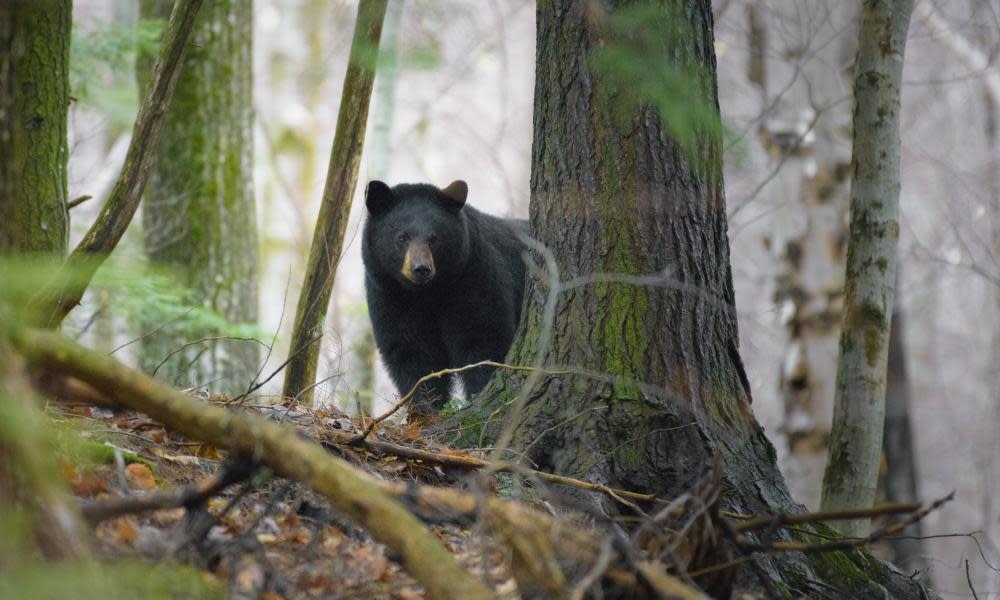Canadian conservation officer fired for refusing to kill bear cubs wins legal battle

A conservation officer in Canada who was fired for refusing to kill two black bear cubs has won a protracted legal battle over his termination.
“I feel like the black clouds that have hung over my family for years are finally starting to part,” Bryce Casavant told the Guardian. “But the moment is bittersweet – my firing should have never happened in the first place.”
Casavant was dispatched in 2015 to a mobile home park near the British Columbia town of Port Hardy, where a female black bear was rummaging through a freezer of meat and salmon.
Under the province’s policy, Casavant shot and killed the mother, but decided not to harm the cubs, who residents told him hadn’t been spotted eating food or garbage.
“Instead of complying with the kill order, he took the cubs to a veterinarian who assessed them and transferred them to the North Island Recovery Centre,” the court documents read. The two cubs were eventually released back into the wild.
But because of his refusal to follow orders, Casavant was suspended and then fired.
Casavant spent years fighting his termination at various levels of provincial courts, and this week, the BC court of appeals found in his favour.
“I kept fighting so that I could clear my name. I’ve long stood for public service, honour and integrity. It’s how I was raised and how I’ve raised my daughter,” said Casavant, who previously served in Afghanistan in the Canadian military. “I really feel that I was targeted.”
While the judgment does not reinstate him as a conservation officer, Casavant said that the decision was a “vindication” of his costly legal battle, which pit him against two provincial governments and his own union.
Conservation officers have long been aware of a tension between public safety and the management of “garbage bears”.
Related: Rare white grizzly bear sighted in Canadian Rockies
Earlier this year, however, First Nations community members in British Columbia protested the planned killing of a grizzly bear that had been spotted eating garbage. Instead, they lobbied the government and conservation service to relocate the bear. The bear was successfully moved to a new location, but it was subsequently shot and killed.
In January, the conservation group Pacific Wild, which works with Casavant, found that more than 4,500 bears had been killed by conservation officers in the province over the last eight years, including 4,341 black bears.
“[British Columbia] isn’t a shooting gallery for government employees,” Casavant wrote in the report. “It’s unreasonable to believe that, including juvenile bear cubs, over 4,000 black bears were killed ‘as a last resort’.”
